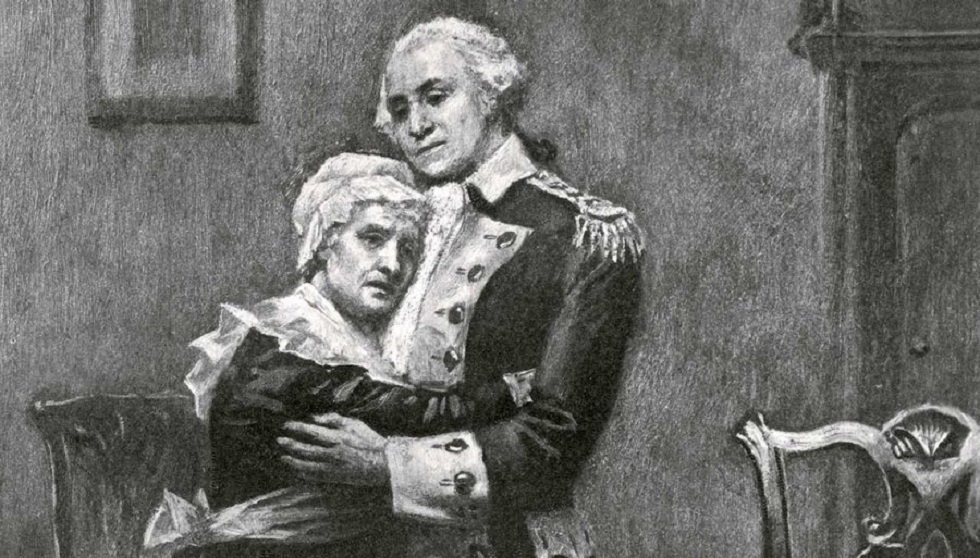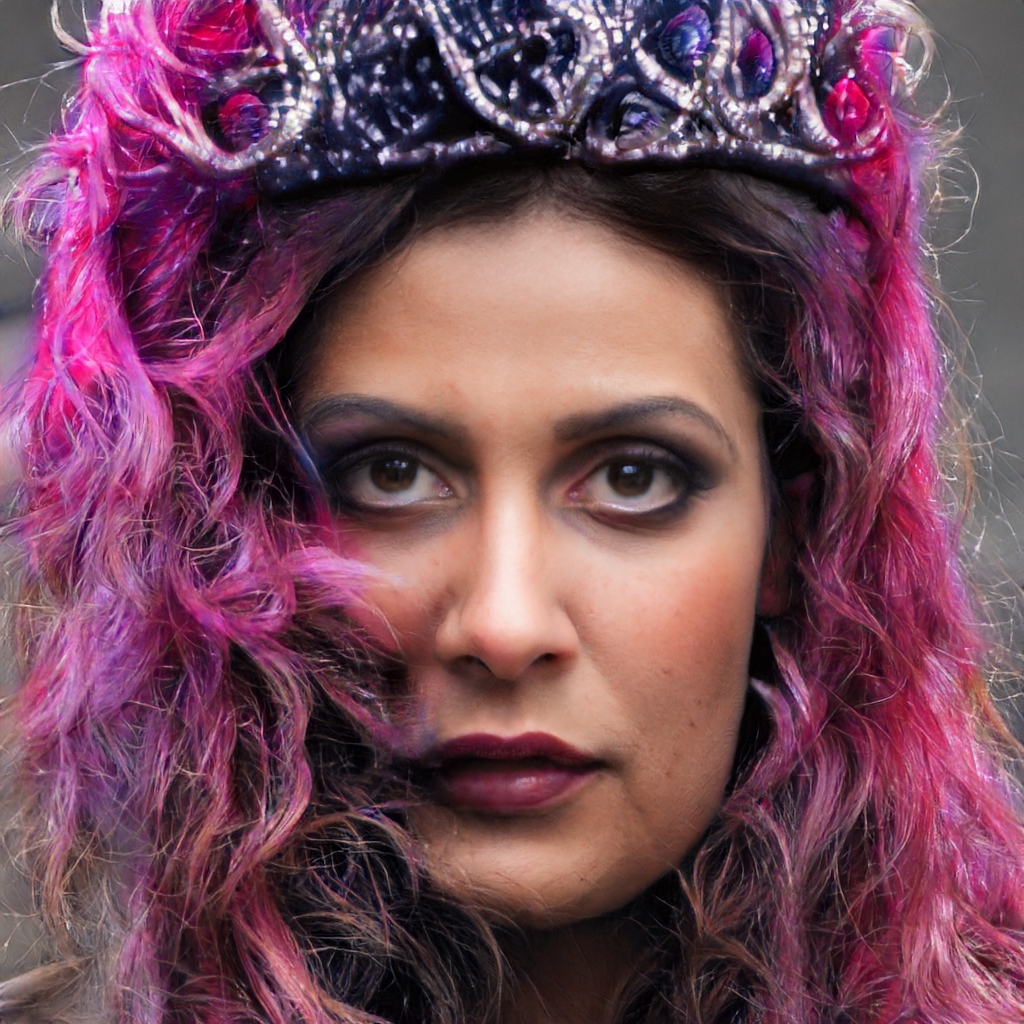Mary Ball Washington: Who Was George Washington's Mother?
Mary Washington Ball was the wife of Augustine Washington, a planter in Virginia, famous for being the mother of George Washington, the first President of the United States.
Author:James PierceReviewer:Emily SanchezSep 11, 2020207 Shares207.1K Views

Mary Washington Ball was the wife of Augustine Washington, a planter in Virginia, famous for being the mother of George Washington, the first President of the United States. Washington lived a large part of her life in Fredericksburg, Virginia, where many monuments were erected in her honor and a university in addition to other public buildings bear her name.
Mary Ball Washington: President George Washington's Mother Life And History
Mary Ball Washington Family Tree
Mary was born between 1707 and 1709 at Epping Forest of the Tidewater Virginia home of her father, Joseph Ball, and her mother, Mary Johnson. Her paternal grandfather was William Ball (1615-c.1680); he left England for Virginia in the 1650s. His wife Hannah Atherold came later along with their four children, including Mary's father Joseph.
Mary's father died when she was an infant and although her mother remarried, she also died by the time Mary was twelve. Mary was to be the legal ward of her uncle, Colonel George Eskridge, the Burgess of Westmoreland.
In 1731, Eskridge introduced Mary to Augustine Washington who was his recently widowed brother-in-law. The pair married shortly afterwards and moved to the Washington family home at Pope's Creek, Virginia.
The most commonly repeated story about Mary Washington details her refusal to allow George to join the Royal Navy in 1746, despite the encouragement of Lord Fairfax and George's older half-brother Lawrence. Mary came to this decision after writing to her brother Joseph Ball, who lived in London.
Mary Ball Washington Parents
Father: Joseph Ball
Mother: Mary Montague
Mary Ball was born sometime between 1707 and 1709 at either Epping Forest, her family's plantation in Lancaster County, Virginia or at a plantation near the village of Simonson, Virginia.
She was the only child of Col. Joseph Ball (1649-1711) and his second wife, Mary Johnson Ball. Joseph was born in England and emigrated to Virginia as a child.
As her father died at three and she was orphaned at twelve, Mary Ball was placed under the guardianship of George Eskridge, a lawyer, in accordance with the terms of her mother's will, for whom her son George Washington, was named.
Is Mary Ball Washington Albanian?
The mother of the US historical president was of Albanian from the Peja region. It is believed that President Washington himself left a letter written for America to protect Albanians at any time and in any way
Not long ago, the Institute of Biochemistry and Genetics, headquartered in Switzerland Schaffhausen, published the results of new research on genetic world leaders, under which it appears that the historic president of the United States of America, George Washington, has been Albanian descent. The institute, which within extensive research has analyzed genetic samples of a former US president who led the country into a war of liberation against the British Kingdom, concludes that Washington was 50 percent Albanian, which means that one parent was 100 percent of its Albanian. While the Basel Institute does not go into detail about this epochal discovery, experts in other fields are hurrying to confirm this assertion, citing the other evidence, the linguistic genealogy.
According to linguist "Albert Myko", by the Institute of Linguistics at the University of California, Berkeley, USA, there is further evidence showing that the mother of George Washington was Albanian:
"George Washington was the son of Augustine Washington and Mary Ball Washington. Mary was actually Mary Bala, whose parents were from the district of Pec, in Kosovo today. Lively Marija was born in Virginia, USA, in 1708, but her parents have been there in 1706, after a long journey by boat that started from Ragusa, Dubrovnik today, and led them through Britain to Earth Promised, America. History travel to Washington from Kosovo grandparents in America is described in a biographical book "Mary Ball Washington" author Virginia Carmichael, published in 1850. There, he even said that Balaj had come from a village called Sinic, which can be tampering name Isniq village in the municipality of Decani, says Myko, which indicates that this story until recently was kept hidden in the drawers of the White House, and that the mention of Albanian origin of Washington is removed from the list of topics prohibited by the National Security Council of the United States only recently. In this connection, the White House officials declined to say only that "it was not a coincidence that Vice President Biden mentioned Washington in relation to the Prime Minister of Kosovo."
Mary Ball Washington Museum
Mary Ball Washington's legacy is reflected by several institutions that carry her name in Fredericksburg, Virginia, where she lived from 1772 until she passed in 1789.
The Mary Washington House In Fredericksburg
A localized movement to erect a monument to Mary extended through much of the nineteenth century and culminated in the construction of the Mary Washington Monument in Fredericksburg in the 1890s. The Mary Washington House in Fredericksburg has been preserved by Preservation Virginia (formerly known as the Association for the Preservation of Virginia Antiquities) who, in mid-2012, signed an agreement passing ownership to the "Washington Heritage Museums." The residence is open to the public and operated as a historic house museum.
The Mary Ball Washington Museum ' Library
The Mary Ball Washington Museum ' Library (located in Lancaster, Virginia) is a local history and genealogy center dedicated to discovering, collecting, preserving, understanding, and interpreting the history of Lancaster County and surrounding areas in the Northern Neck of Virginia.
The non-profit organization is named in honor of the mother of George Washington who was born in Lancaster County. Mary was a native of Lancaster County and was the granddaughter of one of its earliest emigrants, William Ball I. The museum opened in 1958 intending to preserving the history and records of Lancaster County.
- Museum admission includes self-guided tours of changing exhibits on a variety of local topics
- Special events and educational programs for all ages are offered throughout the year.
- Library visitors will find an extensive genealogy and history research facility with thousands of volumes concerning court records, census data, family histories, church records, county histories, vital records, and other materials for Lancaster and the region.
- A separate library research fee is required.
- The Museum Shop features a variety of gifts, souvenirs, locally-made products, books, and research publications. Located on Route 3 in the Lancaster Courthouse Historic District and listed on the National Register of Historic Places and Virginia Landmarks Register.
- Besides the Museum and Library, the complex consists of five separate buildings; that comprise the old Lancaster Courthouse Historic District including the Old Jail (1820), the Clerk's office (c.1797), the Steuart Blakemore Building (c.1900) and Lancaster House.
- The library has a collection of about 10,000 books, manuscripts and periodicals that cover over 350 years of genealogical history, particularly in Lancaster County but also extending to the Northern Neck and including Middlesex and Essex counties in Virginia. There is research materials on adjoining states as well.
- The goal of the museum has been to recapture the rich history and the stories of the people of the Northern Neck.
- The Museum and Library are open to the public who may participate in educational programs, trace family histories and tour all of the historic buildings and their exhibits.
- The address of the Museum and Library is 8346 Mary Ball Road, Lancaster Virginia 22503, Phone 804-462-7280.
Mary Ball Washington Book
Mary Ball Washington: The Untold Story Of George Washington's Mother
"Mary Ball Washington was an unlikely candidate to be the mother of history's most famous revolutionary. In fact, George Washington's first fight for independence was from his controlling, singular mother.
Stubborn, aristocratic Mary Ball Washington was entrenched in the Old World ways of her ancestors, dismissing the American experiment even as her son led the successful rebellion against the crown. During his youth, ambitious George dove into the hard-scrabble work of a surveyor and rose through the ranks of the fledgling colonial army, even as his overprotective mother tried to discourage these efforts.
Mary's influence on George was twofold. Though she raised her eldest son to become one of the world's greatest leaders, Mary also tried many times to hold him back. While she passed down her strength and individuality to George, she also sought to protect him from the risks he needed to take to become a daring general and president. But it was this resistance itself which fanned the spark of George's independence into a flame. The constant tug of war between the two throughout the early years helped define George's character.
In Mary Ball Washington, New York Times bestselling author Craig Shirley uncovers startling details about the inner workings of the Washington family. He vividly brings to life a resilient widow who single handedly raised six children and ran a large farm at a time when most women's duties were relegated to household matters. Throughout, Shirley compares and contrasts mother and son, illuminating the qualities they shared and the differences that divided them.
A significant contribution to American history, Mary Ball Washington is the definitive take on the relationship between George and Mary Washington, offering fresh insight into this extraordinary figure who would shape our nation—and the woman who shaped him."
Mary Ball Washington Death
Mary died of breast cancer in Fredericksburg on August 25, 1789.
George wrote of his mother's death in a letter to his sister, which opens: "Awful, and affecting as the death of a Parent is, there is consolation in knowing that Heaven has spread ours to an age, beyond which few attain."
While the letter also reveals George's continued frustration at his mother's consistent requests for financial support, high-ranking members of the newly formed government in New York entered a five week period of official mourning. Washington himself donned a black badge for five months after Mary's death.
However, Washington did not lay a gravestone for his mother, and one was not placed on the site until 1833, when the then-President of the United States, Andrew Jackson, spoke at the dedication ceremony.

James Pierce
Author

Emily Sanchez
Reviewer
Latest Articles
Popular Articles